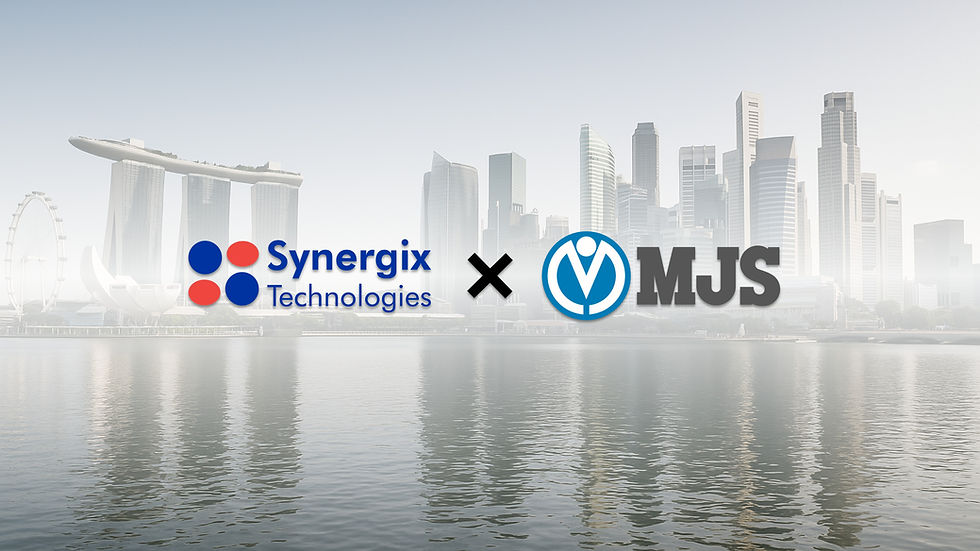Can Meta Stage a Metaverse Comeback with Generative AI?
- Simeon Spencer
- Jul 8, 2024
- 4 min read

In a strategic pivot, Meta is betting on generative AI to breathe new life into its metaverse ambitions. With a focus on enhancing virtual reality (VR), augmented reality (AR), and mixed reality (MR) games, the tech giant aims to create dynamic, ever-evolving gaming experiences. This move, highlighted in a recent job listing, reflects Meta's effort to reignite interest in its metaverse platform, Horizon, and address the ongoing challenges facing Reality Labs.
Technology Landscape for AI in Games
Meta’s renewed focus on Metaverse comes at a crucial time for the company. Despite selling millions of Quest headsets, user engagement on Horizon’s mixed reality platform has lagged, contributing to substantial financial losses for Reality Labs. By investing in generative AI, Meta aims to revitalize its metaverse strategy and regain momentum.
This initiative is part of a broader industry trend where tech giants like Google and Microsoft, as well as smaller players such as Disney-backed Inworld, are exploring the integration of AI in game development. Generative AI has begun to trickle into game development, with companies like Inworld and Artificial Agency applying the tech to create more dynamic game dialogues and narratives. A number of platforms now offer tools to generate game art assets and character voices via AI—to the chagrin of some game creators who fear for their livelihoods. These advancements promise to democratize content creation, enabling smaller studios and individual creators to compete with established game developers. AI-generated assets, dialogues, and narratives can significantly cut down production times and costs, fostering innovation and diversity in the gaming industry.
However, this shift also raises concerns among game developers and artists about job security and creative control. The automation of content creation could lead to fewer opportunities for human creators, altering the landscape of the industry. Balancing the benefits of generative AI with the need to preserve human creativity and employment will be a critical challenge for Meta and other companies in this space.
Implications for the Future of Gaming
The successful integration of generative AI into Meta’s metaverse games could set a new standard for the industry, influencing how games are developed and experienced. Here are some key implications:
Enhanced Player Engagement: AI-driven, dynamic content can keep players engaged longer by offering fresh and unpredictable experiences. This could lead to higher retention rates and a more dedicated user base for Meta’s Horizon platform.
Faster Development Cycles: Generative AI tools can automate many aspects of game development, from creating environments to scripting dialogues, allowing developers to focus on refining gameplay and innovative features. This could result in a faster time-to-market for new games and updates.
Broader Applications: Beyond gaming, the advancements in generative AI could spill over into other areas of the metaverse, including virtual social spaces, education, and professional training. AI-driven simulations and environments could provide more realistic and interactive experiences across various applications.
Despite Gen AI, Meta Faces Daunting Challenges in Building the Metaverse
Meta's plans to build a virtual world are ambitious. However, this path forward is fraught with significant hurdles. Meta's previous attempts to create the metaverse, particularly during the COVID-19 pandemic, fell short of expectations. In 2021, the metaverse was heralded as the future of tech, a vast virtual universe for work, play, and socializing. Despite significant investments, early iterations of Meta’s Horizon platform were plagued by clunky avatars, uninspiring user experiences, and a lack of engagement. A Business Insider article reported that Decentraland, one of the most well-funded Metaverse products, only had around 38 daily active users in its $1.3 billion ecosystem. The failure has been attributed to tech limitations, bad user experience, high cost of entry, the rise of generative AI, and privacy concerns. Users found the worlds to be uninspiring and lacking in variety.
Investor confidence has been further shaken by the significant financial losses reported by Reality Labs, Meta's division dedicated to VR and AR development. The division has incurred cumulative losses exceeding $45 billion since 2020, reflecting the enormous costs and slow user adoption associated with Meta’s metaverse projects.
During Meta's most recent earnings call, Mark Zuckerberg began by discussing artificial intelligence before moving onto the metaverse, touting his company’s headsets, glasses, and operating system. Investors were unimpressed; Meta shares tumbled as much as 19% in extended trading on April 24, wiping out more than $200 billion in market capitalization. The drop came despite Meta reporting better-than-expected profit and revenue for the first quarter.
Notwithstanding these setbacks, Meta's pivot to generative AI adds another layer of complexity and risk. While generative AI may help to solve the game’s issue of lacking variety and gameplay, integrating generative AI into this framework could further overextend the company's resources and capabilities, investing valuable resources into an initiative that is unproven and may not turn a profit quickly. This could lead to further delays and cost overruns, reminiscent of previous missteps. Additionally, there is skepticism about whether the current market is ready to embrace such advanced AI-driven gaming experiences, given the lukewarm reception to earlier metaverse initiatives.
In conclusion, Meta’s push for generative AI in metaverse games represents a bold step towards redefining the future of gaming. However, the company must navigate a landscape of past failures, investor disappointment, and significant technological hurdles. Success will depend on Meta’s ability to deliver on its promises without overextending its resources, ultimately creating richer, more immersive experiences that captivate players and drive the evolution of the metaverse. The journey ahead is complex and fraught with challenges, but the potential rewards are substantial, promising a new era of innovation and engagement in the digital world.





Comments